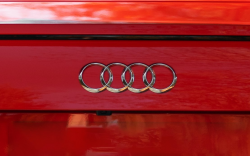
— A Volkswagen turbo lawsuit has survived a dismissal bid but not by much.
The plaintiff who filed the turbocharger lawsuit says she leased a 2010 Audi A4 and purchased the vehicle in December 2012.
In 2019 and with more than 63,000 miles on the odometer, her vehicle allegedly had turbocharger problems.
The class action alleges the defect is, “exhaust gas pulsations and vibrations within the turbocharger housing, wastegate linkage geometry and absence of adequate bushings, utilization of inadequate wastegate linkage fabrication materials including but not limited to dimensional construction and heat treatment.”
According to the VW turbo class action, these vehicles are defective.
- 2012-2014 Volkswagen Beetle
- 2009-2012 Volkswagen CC
- 2009-2012 Volkswagen Eos
- 2008-2012 Volkswagen GTI
- 2008-2014 Volkswagen Jetta
- 2008-2010 Volkswagen Passat
- 2009-2014 Volkswagen Tiguan
- 2008-2012 Audi A3
- 2009-2013 Audi A4
- 2009-2013 Audi A5
- 2012 Audi A6
- 2009-2012 Audi TT
- 2011-2012 Audi Q5
The plaintiff contends the alleged defect is “substantially certain” to cause VW and Audi turbocharger failures. Because her vehicle was years out of its warranty, the plaintiff says she was "forced to pay approximately $3,000 for diagnosis and replacement of the turbocharger."
The class action alleges Volkswagen knew about the alleged turbocharger problems but concealed what it knew from consumers.
The VW turbo lawsuit was originally filed in July 2022 but was dismissed by the judge in March 2023. However, the judge allowed the plaintiff to change and refile the lawsuit.
Audi and VW Turbo Lawsuit Partly Dismissed
The plaintiff refiled the turbo class action by alleging Volkswagen misrepresented the quality of the vehicles. She says she relied on misrepresentations in the owner’s manual, and warranty and maintenance pamphlets.
But Judge John Michael Vazquez found the plaintiff failed to allege she viewed any documents before she leased the vehicle. She also failed to allege misrepresentations in these documents were a substantial factor in her decision to purchase her vehicle.
"For example, Plaintiff does not point to any specific statements in any of the documents, plead when she reviewed these documents, or indicate that any statement was a substantial factor that led to her purchase." — Judge Vazquez
According to the plaintiff, VW knew the turbos were allegedly defective before she got her vehicle in 2012 through tech tips and technical service bulletins issued to VW dealers. But the documents refer to a rattle, and the plaintiff admits the rattle was repaired by installing a retaining clip.
The judge ruled the class action alleges Volkswagen knew about the rattle before she purchased her vehicle, but not about the alleged defect named in the lawsuit.
By the end of his order, the judge dismissed all the claims against VW except for one, a claim against the automaker for negligent misrepresentation.
The Audi and Volkswagen turbocharger lawsuit was filed in the U.S. District Court for the District of New Jersey: Julie Kimball v. Volkswagen Group of America, et al.
The plaintiff is represented by Kantrowitz, Goldhamer & Graifman, P.C., and Thomas P. Sobran PC.




